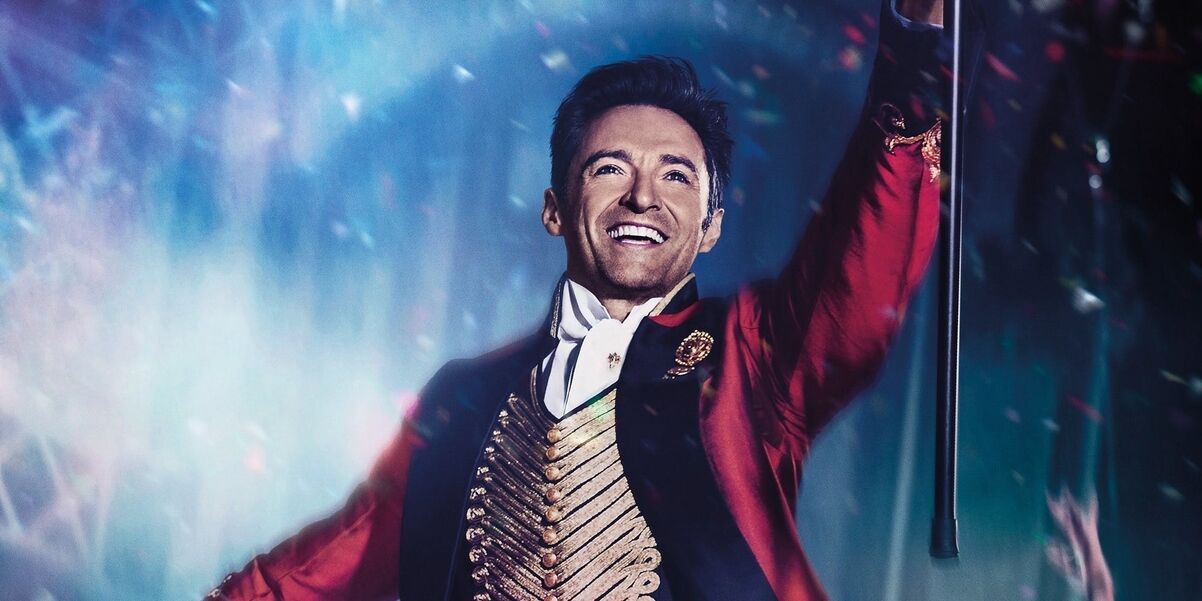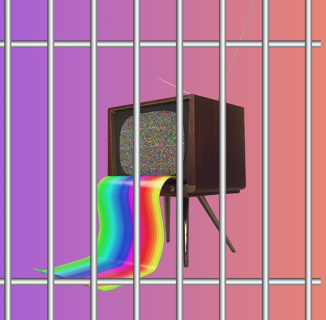In “But How Gay Is It?”, we seek to answer the biggest questions you have about a new movie release in theaters now including, most crucially, the titular question. Does the movie have any queer characters? Are there stories involving same-sex lovers? Which gay icons star in the film? We’re bringing you all that and more.
What is The Greatest Showman?
Objectively, it’s a musical about the creation of P.T. Barnum’s Circus which would come to be known, of course, as the Ringling Bros. Barnum & Bailey Circus. (That circus shut down fairly recently, which gave us all a chance to reconcile our childhood memories of loving the circus with its deeply racist history.) The songs are written by the Oscar- and Tony-winning songwriting team behind La La Land and Dear Evan Hansen, Justin Paul and Benj Pasek.
Subjectively, it’s irresponsible filmmaking. The Greatest Showman presents Barnum as a colorblind hero who values the differences in his circus performers. Those performers are window dressing to a story near-exclusively focused on Barnum. The songs are treacly contemporary pop that clash wildly with the setting. And the performances, while across-the-board mostly average, can’t save a sinking ship.
Who’s in it?
Hugh Jackman is Barnum, and has already been awarded a wildly undeserved Golden Globe nomination for his work. Michelle Williams plays his wife, Charity; between this and the troubled production of All the Money in the World, she is having a year.
The circus performer cast includes stage siren Keala Settle as bearded woman Lettie, Zac Efron as fill-in showman Phillip, Zendaya as acrobat (and Phillip’s love interest) Anne, and Rebecca Ferguson as “opera” singer (scare quotes fully intended) Jenny.
Why should I see it?
You shouldn’t, to be brutally honest. There are a million better options out there, from Star Wars to Call Me By Your Name to The Disaster Artist. Hell, even A Bad Moms Christmas is better. I know everyone needs an escape from family during the holidays, but there are far better ways to spend your time and money than The Greatest Showman.
What’s so awful about it?
Is it just that the depiction of Barnum is too kind? Not even close. This movie is determined to sabotage itself. For example, the choreography during the group numbers is impressive, with a dance ensemble that hits their marks hard and confidently. So what do cinematographer Seamus McGarvey and editor Joe Hutshing do with that? Well, McGarvey’s camera swoops and slides so quickly that you can barely stay focused on any individual dancers, while Hutshing’s editing keeps us at arm’s length at all times, practically chopping everything interesting into bits. If the film slowed down for just a second, it might be at least somewhat enjoyable.
Additionally, I can’t undersell how mediocre the music is. “This Is Me” is the closest to being enjoyable, and that’s because Settle belts her goddamn face off through the whole thing. The songs are otherwise perfectly fine, bland, contemporary pop that have no business scoring a period piece. Most frustratingly, Jenny, the opera singer, is given a basic adult contemporary ballad as her big number (“Never Enough”), suggesting no one in this production understands what opera actually is.
Are the songs catchy?
Some of them, sure! “Rewrite the Stars,” Zac Efron and Zendaya’s number, sticks in your head, and “This Is Me” is an absurd blast of energy that won’t leave you for a while. But catchy isn’t enough. Pop does not musical theatre make, and this is a consistent problem for Pasek & Paul. The songs have no narrative weight to them; they don’t tell the story so much as blatantly state themes. Personally, I’m no fan of theirs; I found the La La Land score mostly forgettable beyond “Audition (The Fools Who Dream),” and have many major issues with Dear Evan Hansen. But this is clearly their worst work to date. (They wrote songs for Smash that were better than this!)
A prevalent theme in Pasek & Paul’s work being different is to be celebrated, not quashed takes on a deeply cynical tone here, as The Greatest Showman fills its ensemble with “unique” people (Barnum’s word), but then fails to give them any character development. Nearly all the solos go to white, non-circus members of the cast; the rare exceptions are mere diversions. “Look out ‘cause here I come,” Settle’s Lettie sings on “This Is Me.” But the movie is too focused on Jackman, Williams, and Efron to notice.
But how gay is it?
A musical starring Jackman and Efron was destined to be catnip for gays. Settle is the melodramatic beltress of your dreams. Ferguson and Zendaya look flawless, particularly as they perform. And the Pasek half of Pasek & Paul is gay. Yet this story about loving who you are no matter what the world thinks could not find space for a gay, queer, gender non-conforming, or trans character.
It seems like the movie is full of sweet, if overly simple, messages about embracing who you are. Isn’t that enough in these divisive times?
It really isn’t. Motive is not the question; I sincerely believe everyone involved with The Greatest Showman thought they were creating an affirming, lovely film. But it’s hypocritical to write a movie and score about embracing your differences, then barely focus on anyone who’s not conventionally attractive and movie star-famous.
It’s baffling that Zendaya’s Anne’s blackness is most often examined through the lens of of how it affects her white love interest, Efron’s Phillip. It’s deeply troubling that the only other black character in the piece, Anne’s brother W.D. (played by Yahya Abdul-Mateen II), only exists to introduce Anne and stare intimidatingly at Phillip when he tries to make a move on Anne. The rest of the circus ensemble (save Settle’s Lettie) gets no more than a few lines in. When the whole crew comes to Barnum’s rescue later in the film, we’re meant to be compelled by their bonds with him but we haven’t actually seen those, because the script didn’t care enough about them to let us.
We live in divisive times, yes. But what that requires is a centering of the voices who are marginalized. It’s those people who literally save us from the Roy Moores of the world every time an election rolls around. It’s impossible to respect a movie like The Greatest Showman, with songs that claim to celebrate the oppressed sung by a white male protagonist whose racist past was wholly adapted out. We deserve better in these times. We deserve the voices of the oppressed to be raised up, even and especially in our blockbuster movies. Put simply, we deserve more than The Greatest Showman.
The Greatest Showman is in theaters now.
Help make sure LGBTQ+ stories are being told...
We can't rely on mainstream media to tell our stories. That's why we don't lock our articles behind a paywall. Will you support our mission with a contribution today?
Cancel anytime · Proudly LGBTQ+ owned and operated
Read More in Culture
The Latest on INTO
Subscribe to get a twice-weekly dose of queer news, updates, and insights from the INTO team.
in Your Inbox















